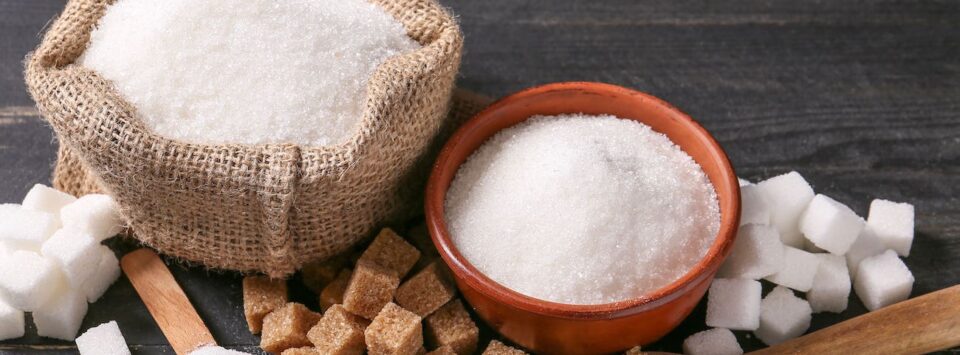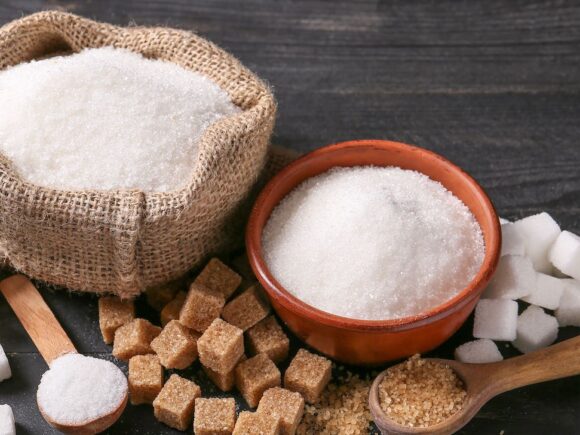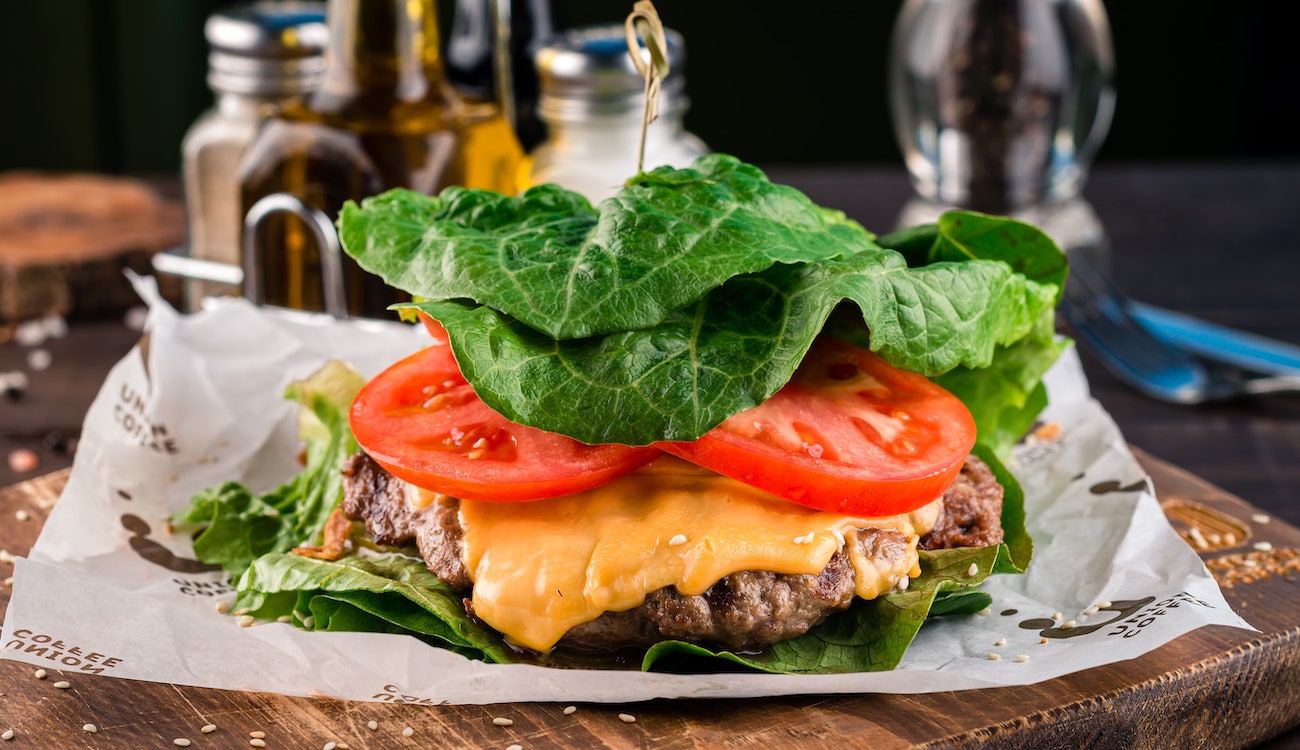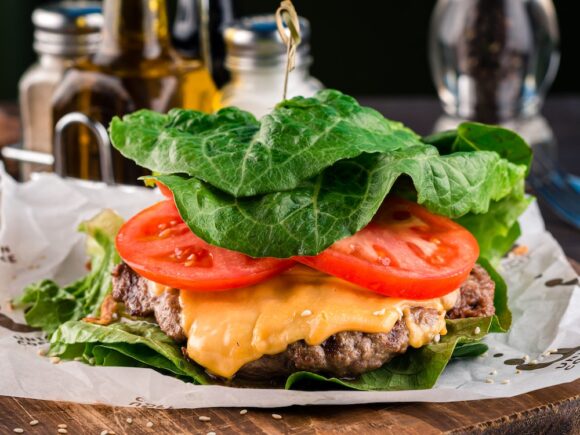How Much Sugar Can You Have on Keto? Sugar, Ketosis, and the Best Alternatives


If you are trying to follow the ketogenic diet and have a sweet tooth, you need to monitor your sugar intake. After all, the ketogenic diet only works if you eat low-carb.
Since sugar is the simplest form of carbohydrate, keto dieters must limit the amount they eat to avoid spikes in their blood sugar levels, which can negatively affect their weight loss efforts.
Therefore, answering the question is critical to the success of the ketogenic diet – how much sugar can you eat on keto?
This article looks at sugar, the impact it has on your body, how much sugar is too much on keto, and gives you options for a keto-friendly sugar substitute.
What Is Sugar?
White table sugar is usually the first thing that comes to mind when someone mentions sugar. However, sugars are found in many foods, both in natural form and added.
To be mindful about your keto diet sugar intake, it’s necessary to have a basic understanding of what sugar is, where it’s found, and how it impacts fat burning. Are you ready for a quick food chemistry lesson?
All carbohydrate foods contain sugars in various configurations. The simplest carbs are made up of single sugar molecules called monosaccharides. They include glucose, galactose, and fructose and are rapidly absorbed into the bloodstream.
When two simple sugars are joined together, they are referred to as disaccharides. They include lactose, sucrose (traditional sugar), and maltose. When these sugars are digested, they are broken down into their monosaccharide molecules.
More complex carbohydrates are made up of a combination of many mono- and disaccharide molecules and include starch and dietary fiber. Your digestive system has to work a lot harder to break these units down into simple sugars, so your blood sugar response will vary depending on how quickly they can be digested.
How Much Sugar Can You Have on Keto?
All carbohydrates are broken down into sugar when they are digested, and although you are eating low-carb on the keto diet, carbohydrates are found in some keto-friendly foods, even vegetables. This makes sugar impossible to avoid altogether.

So how many grams of sugar can you have on keto? To maintain the body’s fat-burning state on keto, you need to keep your carbohydrate (or sugar) consumption within the daily carbohydrate limit of 50 grams. These 50 grams include both natural and added sugars. While it’s best to eliminate added sugars completely on a keto diet, you can include a little when you have a sugar craving, as long as you don’t exceed 50 grams of carbohydrates per day.
Keep in mind that large amounts of refined sugars, such as table sugar, will cause a spike in your blood sugar, which can knock you out of ketosis. Therefore, you need to limit your intake to ensure that your body continues to burn fat.
1 teaspoon of white sugar provides 4.2 grams of carbs. Therefore, consuming 1 teaspoon per day is fine and can satisfy your sweet tooth without jeopardizing your weight loss.
Because keto is so restrictive, some dieters allow themselves to have a cheat day once in a while, where they can consume more sugar than generally accepted on keto.
Does Sugar Affect Ketosis?
The standard ketogenic diet is a moderate-protein, low-carbohydrate, high-fat diet. When you limit your carbohydrate intake to less than 50 grams per day and increase your fat intake to 70–80% of your total caloric intake, your body switches from using carbohydrates for energy to using fats.
This fat-burning state is called ketosis and is the reason you lose weight and body fat when you follow the keto diet. When you choose the right foods on keto, ketosis also offers numerous health benefits, including a reduced risk of heart disease, high blood pressure, and type 2 diabetes.
However, for the keto diet to work, you must maintain ketosis, and to do so, you must limit your carb intake. That means most of your carbs are found in non-starchy vegetables, limited amounts of dairy products, and fruits such as berries.
If you consume too much sugar and foods such as grains, starchy vegetables, and processed foods that break down into sugar when digested, it becomes impossible to maintain ketosis.
Note that ketosis can actually help keep sugar cravings away. Therefore, they are easier to manage on the keto diet, and eliminating added sugars is relatively easy, especially if you focus on low-carbohydrate whole foods.
Added Sugar vs. Naturally Occurring Sugar
How much sugar you consume on the keto diet depends on both added sugars and naturally occurring ones. It must be remembered that white table sugar isn’t the only form in our food; hidden sugars can be found in numerous products.
Sugar is added to processed foods such as candy, carbonated cold drinks, breakfast cereals, cakes, cookies, desserts, and ice cream. It may be included in nutrition information labels as high fructose corn syrup, malt syrup, cane sugar, invert sugar, or molasses, to name a few.
Natural sugars are found in foods such as fruits, honey, and dairy products. Although they are considered healthier sources of sugar than processed foods, natural sugars in foods contribute to your daily carbohydrate intake and should also be limited on the keto diet.

Keto Sugar Alternatives
Using a keto sugar substitute can help you reduce your sugar intake on the keto diet while controlling your blood glucose levels and helping you maintain ketosis.
To limit how much sugar you consume, you may consider using sugar-free alternatives, including calorie-free sweeteners and sugar alcohols. Examples of such sweeteners include stevia, monk fruit, and the sugar alcohol erythritol.
These sugar-free alternatives help you maintain the metabolic state of ketosis while still enjoying the sweet taste you love. The keto-friendly sweeteners provide no or very little energy in the form of carbohydrates and, unlike added sugars, have little to no effect on your blood sugar levels.
Keto-friendly sweeteners include:
- Stevia
- Monk fruit
- Erythritol
- Xylitol
- Sucralose
How Much Sugar Can You Have on Keto: Final Thoughts
Sugar is naturally present in most foods, including low-carb meals, so it is impossible to completely eliminate it from your diet. However, as long as you don’t exceed 50 grams of carbohydrates per day, you’re on track to enjoy the fat-burning and health benefits of ketosis. However, added sugars found in processed foods, soft drinks, and desserts are very high in carbohydrates and can pose a risk to your weight loss efforts.
So yes, you can have sugar on keto as long as you stay within your carb intake limit.
The Keto Cycle app can make it easier to transition from a diet filled with sugary treats to one that supports ketosis, health, and weight loss. Take the quick quiz to get a personalized keto diet plan that works for you and considers your lifestyle and preferences.
Frequently Asked Questions
Is coconut sugar keto?
No, coconut sugar is not suitable for inclusion in the keto diet. Although it contains more nutrients than table sugar, including vitamin C, vitamin E, zinc, potassium, and polyphenols, it is still a source of carbohydrates.
Coconut sugar has a low GI, resulting in a slow rise in blood sugar, which is why it can be mistaken for keto-friendly. However, the carbohydrate content may make it more difficult to keep your net carbs down and maintain ketosis.
How much sugar will kick you out of ketosis?
It is best to avoid sugar altogether when following the keto diet. If you can’t, make sure you limit your intake to no more than 1–2 teaspoons per day and stick to your daily carb limit of less than 50 grams per day.







